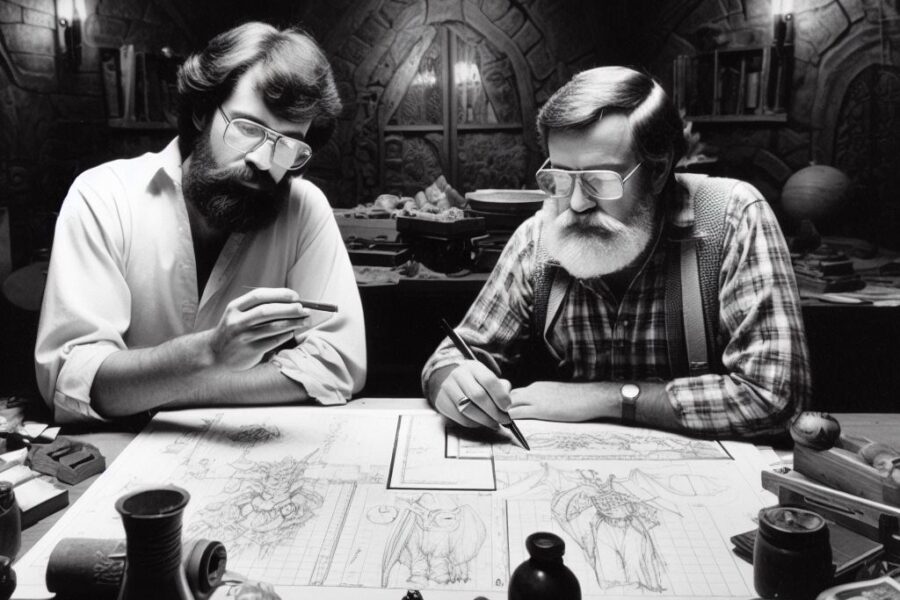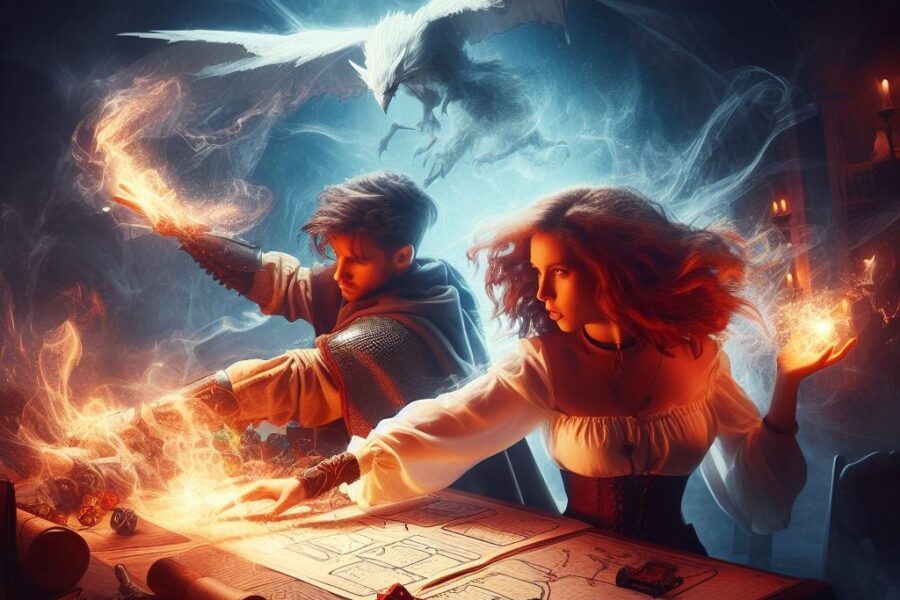
Dungeons & Dragons (D&D) is a game that immerses players in a world of creativity, quests and friendship. In this universe players come across character types and interactions that influence how the game unfolds. A dynamic that is both amusing and challenging is the player who frequently interrupts the story progression, often for comedic purposes. This article checks into this dynamic by examining a D&D session and providing tips on how to handle such scenarios.
Table of Contents
- The Goblin Encounter
- The Role of the Dungeon Master
- Player Archetypes in D&D
- Managing Disruptive Behavior
- The Consequences of Chaos
- The Importance of Character Development
- Conclusion: Balancing Fun and Narrative
- FAQs
The Goblin Encounter
Imagine this scene; as dusk falls a group of explorers finds themselves encircled by a swarm of goblins, commanded by the fearsome Goblin King. This scenario is a staple in Dungeons and Dragons where players confront a perilous situation that calls for tactics and collaboration. Yet when one player—let’s refer to him as Scoots—opts to handle things solo the meticulously woven story starts to come apart at the seams.

Scoots, instead of discussing or strategizing opts for a silly yet out of place surprise punch on the Goblin King. This impulsive move throws off the games pace leading to a chain of responses from the players and the Dungeon Master (DM).
The Role of the Dungeon Master
The Dungeon Master, plays a role, in shaping the plot and keeping the games ambiance intact. When Scoots disrupts the story flow Brandon the DM has to adjust to the unexpected turn of events. This scenario underscores the tightrope that DMs walk between encouraging player imagination and safeguarding the storyline.
Brandon, despite his irritation recognizes the unpredictable behavior of Scoot. He points out to the team how players choices influence the storyline. This instance highlights the DMs duty to craft a captivating plot while handling player antics.
Player Archetypes in D&D
Dungeons and Dragons showcases a range of player types each adding their flavor, to the game. Scoots represents the wild card character type known for their love of unpredictability and humor. While this brings about moments it can also be a source of frustration for players who seek a deeper gameplay experience.
- The Strategist: This player focuses on planning and executing tactics to overcome challenges.
- The Role-Player: Immerses themselves in their character, often engaging in dialogue and emotional arcs.
- The Wild Card: Brings unpredictability to the table, often leading to humorous or chaotic situations, like Scoots.
Grasping these character types can assist both players and DMs in managing their groups interactions better guaranteeing a fun filled time for all.
Managing Disruptive Behavior
Handling a player who consistently interrupts the storyline can be a bit tricky. Here are some approaches that both DMs and players should keep in mind.
- Set Expectations: At the beginning of the campaign, establish guidelines for behavior during sessions. This can help manage expectations and reduce disruptive actions.
- Incorporate Humor: Embrace the wild card’s antics in moderation. Allowing for moments of levity can enhance the experience for everyone, provided it doesn’t derail the game.
- Communicate Openly: If a player’s actions consistently disrupt the game, address the issue directly. A friendly conversation can lead to a better understanding of group dynamics.
The dynamics of each group are different and striking a balance, between creativity and storytelling framework is crucial, for an enjoyable Dungeons and Dragons adventure.
The Consequences of Chaos
Following Scoots’ mischief things take a turn. The Dungeon Master brings in a event, a meteor strike. This acts as a plot consequence for the players impulsive behavior. Now dealing with the fallout of his decisions Scoots has to grapple with the truth of his characters vulnerability in the game.

This twist in the plot highlights a key principle of Dungeons and Dragons; decisions carry weight. Gamers need to understand that their choices can greatly influence the narrative and the destinies of their characters.
The Importance of Character Development
In D&D gameplay, character development plays a role. As players immerse themselves in the story they form connections with their characters and other players. Scoots, although a disruptive element offers a view on character interactions. His antics often result in instances of teamwork and humor that can enhance the groups unity.
Nonetheless players must find a way to blend their enjoyment with the importance of honoring the story progression of the group. Achieving this balance creates a space where everyone can flourish and savor their D&D adventures.
Conclusion: Balancing Fun and Narrative
Dungeons & Dragons is a realm of creativity teamwork and storytelling. While characters, like Scoots may inject humor and unpredictability into the game its crucial to strike a balance, between enjoyment and preserving the storys authenticity. By recognizing player roles handling disruptive actions and embracing the outcomes of decisions groups can craft unforgettable and delightful adventures.
To explore insights, about D&D be sure to check out our additional articles.
- How Many People Can Play D&D?
- How Does Combat Work in D&D 5E?
- What is the Best Weapon in Dungeons and Dragons?
- How Does Dungeons and Dragons Work?
FAQs
What should I do if a player is consistently disruptive?
Effective communication is crucial. Tackle the problem head on with the player and establish guidelines for upcoming meetings.
How can I encourage role-playing without forcing it?
Incorporate chances, for growth in the storyline and prompt players to delve into their characters pasts and reasons.
What are some fun ways to incorporate humor in D&D?
Incorporate moments into the campaign while ensuring they align with the tone. Think about introducing funny non player characters or scenarios to add some humor.
How important is the DM’s role in shaping the narrative?
The Dungeon Master plays a role, in shaping the storyline however player decisions have an influence, on the plot. Working together improves the enjoyment, for all involved.







